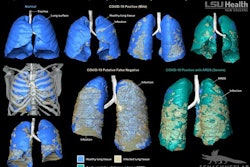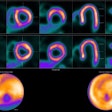Dear AuntMinnie Member,
Starting in just a couple weeks, this year's RSNA meeting promises to be, well, interesting. To be held as a virtual meeting for the first time ever, RSNA 2020 aims to replicate the in-person version of radiology's showcase conference in as many ways as possible.
The RSNA has created a digital environment where virtual attendees can view presentations and visit exhibitors. From a quick look at the program, it's obvious that artificial intelligence (AI) will once again be a major theme of the meeting.
You'll find an advance look at this year's program in our Road to RSNA preview. We interviewed chairs of a number of the program committees for the conference and got their perspective on what's going to be hot at the virtual meeting. The first four sections of Road to RSNA are now live -- just visit rsna.auntminnie.com, and stay tuned for more sections next week.
Of course, some things about the RSNA meeting are impossible to imitate. The bracing gusts blowing in off Lake Michigan, the tantalizing aroma of fresh-baked fudge in McCormick Place, the seemingly endless line at Starbucks, the aching feet at the end of a long day. But there's always 2021.
DBT vs. FFDM
Digital breast tomosynthesis (DBT) has been making headlines for years as an improvement over traditional full-field digital mammography (FFDM). In our Women's Imaging Community this week, we highlighted a study that shows another advantage -- earlier detection of invasive cancers.
Researchers from Italy compared DBT with FFDM in a screening program in Verona. They found that DBT plus 2D synthesized mammography had a higher cancer detection rate than FFDM, while also generating fewer recalls.
In other news in women's imaging, a disturbing new study published this month indicates that thousands of screening mammograms postponed due to the COVID-19 pandemic may never be made up. Playing catch-up with high-risk patients could force providers to postpone screenings for low-risk women by a year or more.
Also, read about a study in which breast density data derived from mammograms was used to predict the risk of lymphedema in breast cancer survivors.
CT lung cancer screening
Finally, visit our CT Community for a variety of new articles this week, including a large meta-analysis that confirms the value of CT lung cancer screening, a description of the use of an AI algorithm to quantify hematoma on CT scans, and an article raising concerns about variation in radiation dose for CT scans of COVID-19 patients.



















